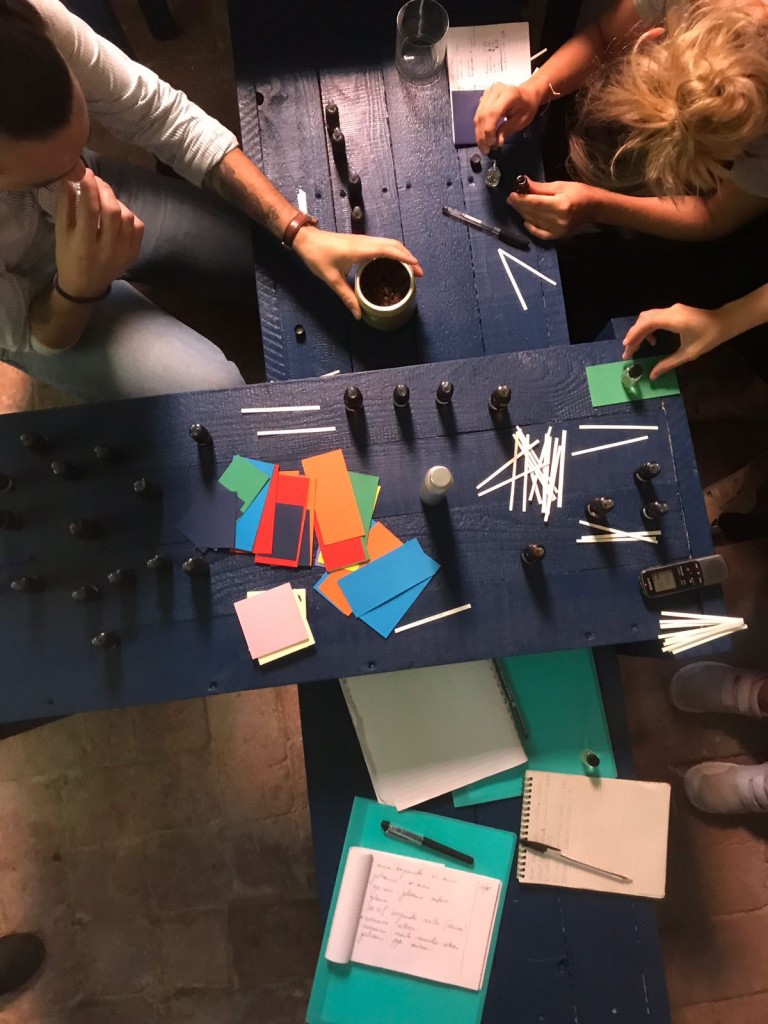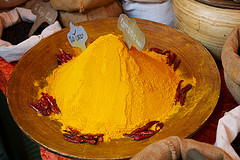Smell is our most ancient sense, and it is in direct connection with our limbic system. This means that smells are capable of reaching the deepest centers of our memory, our emotions and also the regulation of some fundamental functions of our organism, such as hormones.
Certainly perfumes and aromas form a language that we can compare to that of colors and other forms of expression, such as music; we possess the innate ability to ‘think using perfumes’ and to find in them a possibility of expression.
Through the use of aromas we have in hand the ‘colors’ with which we can evoke interior states of mind, memories and our current needs. During the workshop of botanical perfumery in which we use Otto Scharmers’ Theory U to facilitate the creative process, people go through this path in a sensory and sensitive way.
Let’s see how we can go through a path of sensory consciousness with Theory U:
1- co-starting: each participant expresses his/her present moment, wishes and intentions for the workshop; a space is created in which it is possible to ‘look at with new eyes’, i.e. free of judgement about oneself and the others;
2- co-feeling: the exploration of a certain number of essences allows to explore the sensory ‘field’, with aromas coming from the italian terroir and from all over the world. From this point of view aromatherapy and perfumery enables a way of “rooting our awareness” regarding to territory, selecting familiar raw material, but also allowing an extension of perceptive knowledge sniffing at smells of distant places, which may have been collected at different parts of the world.
This said, the sensory horizon broadens and with it also the possibilities of expression do expand; a new consciousness is born about sensory contexts that are often known only through images and stories. The enlargement of the expressive possibilities always corresponds to an enlargement of consciousness of the self – if I find myself in resonance with a tropical flower of which existence I did not even know about, I will ponder about what inspires me in that never smelled perfume, I will find myself discovering a quality of mine that I did not know before (i.e. I find a ‘mirror’ I didn’t know existed), maybe I will start to have more interest in its place of provenance, in people from that land and their culture, to better understand the perfume I just got to know.
3- presencing: the process of smell occurs in silence, and giving oneself the space and time to be able to collect all of the necessary ‘smell-information’. Not only are the essences being sniffed at but also ‘listened to’ in an active meditation process, which means following the intent and letting themselves be guided by the sense and keeping anchored by the emerging self-perception.
4- crystallizing: from this sensory and consciousness exploration some olfactory associations are born in a spontaneous way, combinations ‘speak’ to the person according to what he/her appreciates. In this way prototyping naturally occurs, without steady rules, being left to the persons’ sensibility to choose.
5- prototyping: the person ‘creates its perfume’, i.e. he/she creates his/her own personal synergy, evaluating it personally and asking eventually some comparison; at the end of its personal creative process each person shares its finished work with the group, getting as a feedback a mirroring response in form of colors, inspirations, drawings. It is often incredible how ‘perfect’ the mirroring is, restoring to the person senses and images that she/he had used and perceived during the creation of the perfume. Thus, the person creates a self portrait in an olfactory mode, ‘painting’ about him/herself while feeling at ease.
‘The olfactory intelligence’ is a form of creative consciousness accessible to everyone. It is a form of consciousness that is able to facillitate self-consciousness and creativity, giving voice to the expressive needs of self in each human being. The ‘product’ of such creativity is subsequently used eveyday, and as such it is a transitory product, not intended to last forever, but rather being meant to make the present moment easier.
By creating a formula, the person may also subsequently recreate the perfume – the sensory part in this is transient, while the formula lasts ‘forever’(the formula is the formal architecture that can be interpreted because clearly the choice of the essences has also a psychoaromatic sense).
For more information on Theory U: www.presencing.org


